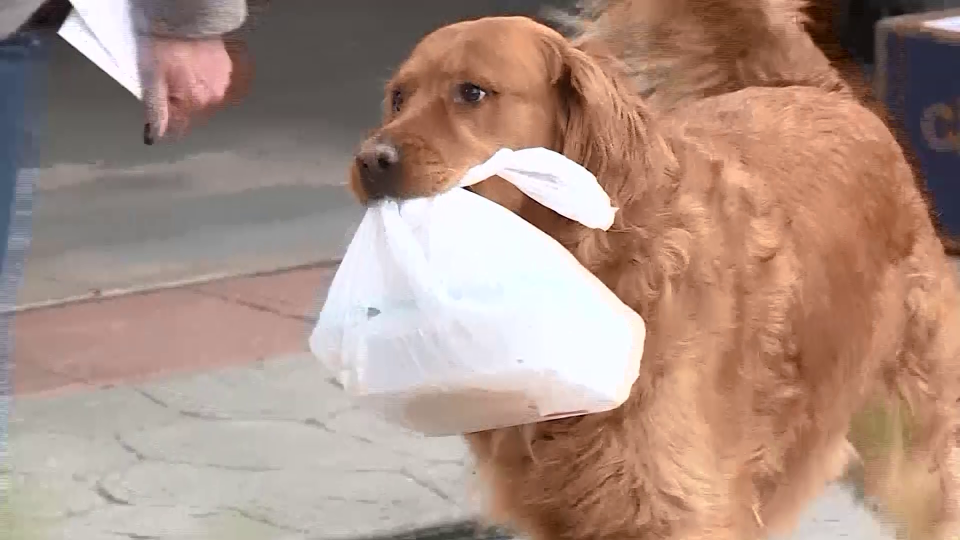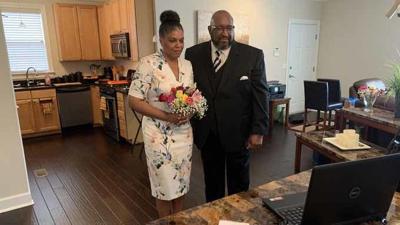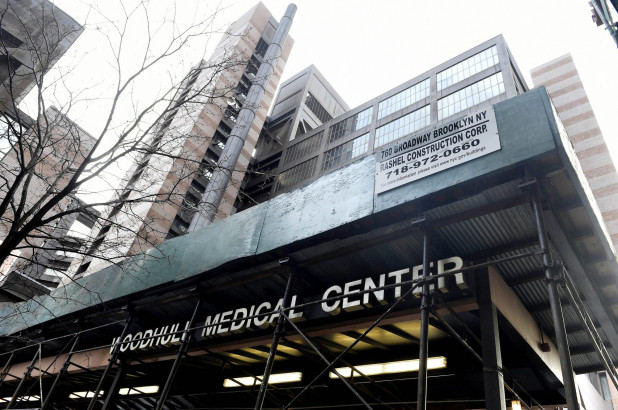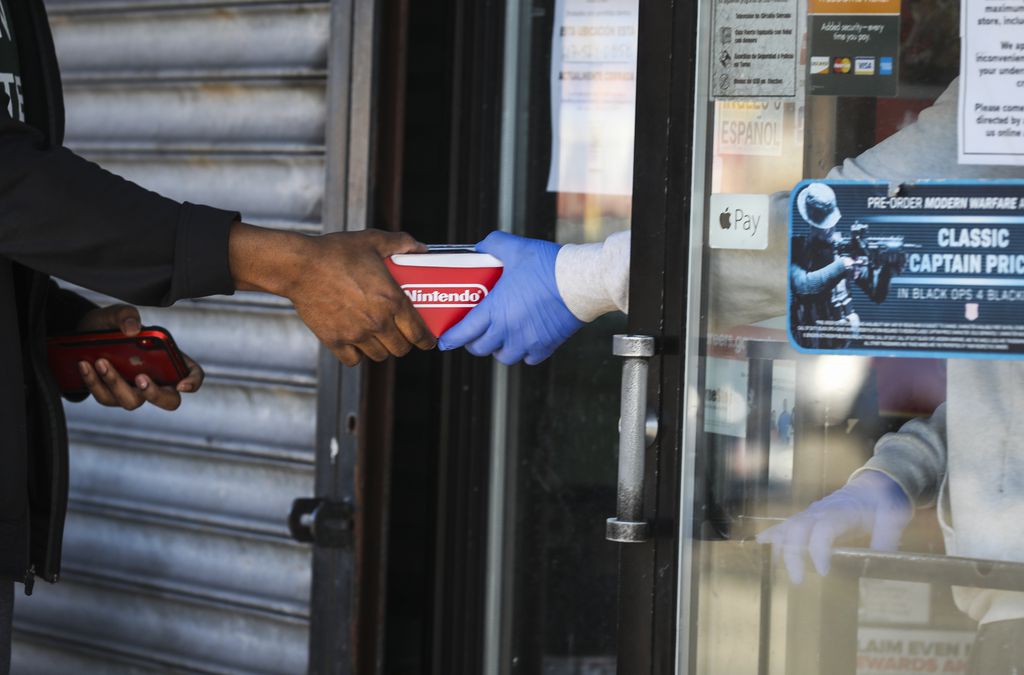American counties with no reports of coronavirus are mostly rural and lower-income, data shows
As the coronavirus rages across the United States, mainly in large urban areas, more than a third of U.S. counties have yet to report a single positive test result for COVID-19 infections, an analysis by The Associated Press shows.
Data compiled by Johns Hopkins University shows that 1,297 counties have no confirmed cases of COVID-19 out of 3,142 counties nationwide. The number of counties without a positive coronavirus case has declined rapidly, dropping from over half as the AP was preparing to publish. Of the counties without positive tests, 85% are in rural areas — from predominantly white communities in Appalachia and the Great Plains to majority Hispanic and Native American stretches of the American Southwest — that generally have less everyday contact between people that can help transmit the virus.
At the same time, counties with zero positive tests for COVID-19 have a higher median age and higher proportion of people older than 60 — the most vulnerable to severe effects of the virus — and far fewer intensive care beds should they fall sick. Median household income is lower, too, potentially limiting health care options.
The demographics of these counties hold major implications as the Trump administration develops guidelines to rate counties by risk of the virus spreading, empowering local officials to revise social distancing orders that have sent much of the U.S. economy into free fall. President Donald Trump has targeted a return to a semblance of normalcy for the economy by Easter Sunday, April 12.
Experts in infectious disease see an opportunity in slowing the spread of coronavirus in remote areas of the country that benefit from “natural” social distancing and isolation, if initial cases are detected and quarantined aggressively. That can buy rural health care networks time to provide robust care and reduce mortality.
But they also worry that sporadic testing for coronavirus could be masking outbreaks that — left unattended — might overwhelm rural health networks.
“They’ll be later to get the infection, they’ll be later to have their epidemics,” said Christine K. Johnson, a professor of epidemiology at the University of California, Davis. “But I don’t think they’re going to be protected because there’s nowhere in the U.S. that’s isolated.”
Counties that have zero confirmed COVID-19 cases could raise a red flag about inadequate testing, she said.
“I hope the zeros are really zeros — I worry that they’re not doing enough testing in those regions because they’re not thinking they’re at risk,” she said.
In New Mexico, a state with 2 million residents spanning an area the size of Italy, Democratic Gov. Michelle Lujan Grisham has moved aggressively to contain the coronavirus’ spread with a statewide school shutdown and prohibition on most gatherings of over five people.
Nearly half of the state’s 33 counties are free of any positive coronavirus cases. New Mexico is among the top five states in coronavirus testing per capita, though some virus-free counties aren’t yet equipped with specialized testing sites beyond samplings by a handful of doctor offices.
Torrance County Manager Wayne Johnson said plans are being made for the first three dedicated COVID-19 testing sites in the high-desert county of 15,000 residents that spans an area three times the size of Rhode Island.
A statewide stay-at-home order is keeping many residents from commuting to jobs in adjacent Bernalillo County, the epicenter of the state’s COVID-19 infections, with 93 confirmed cases out of a state government tally of 208 as of Saturday night.
“We don’t have any test sites open, and part of that is that we don’t have any needs for the test yet,” Johnson said. Still, Johnson said he worries that an outbreak could overwhelm the county’s sole medical clinic and an all-volunteer corps of emergency medical technicians.
The state´s first of two coronavirus-related deaths occurred March 22 within a southern oil-producing region in Eddy County, where two other positive tests have surfaced. A man in his late-70s died shortly after arriving at a hospital in Artesia, and tested positive postmortem. He had previously visited two health clinics, and at the hospital five staff were quarantined for possible exposure even though they wore face masks.
State Deputy Epidemiologist Chad Smelser said health officials have continued to painstakingly retrace the steps of infected patients and notify people who came into contact with them. There are dozens of connections per infection on average.
“We know the details of his prior visits in the health care system,” Smelser said of the deceased Eddy County patient. “We’ve worked with those physicians to assess their exposure. And we do not believe that he acquired it in the health care setting.”
State health officials say it is unclear how many people have been tested for coronavirus in each county.
Medical experts say uneven testing patterns across the country make it difficult to gauge whether remote areas are really better off.
“It’s a fundamental unknown,” said Benjamin Neuman, a virologist at Texas A&M University in Texarkana. “I think there is some truth to that notion that there are lower infection rates out there” in rural areas.
He said he fears for homeless populations and undocumented migrants.
¨We hope they stay safe. Those would be hard places to get rid of the coronavirus,¨ Neuman said.
Complaints that testing is not readily available extend to the crossroads town of Crossett in southern Arkansas, where surrounding Ashley County has no confirmed coronavirus cases.
Disabled veteran Marty Zollman, 42, of Crossett says his wife, a clothing store clerk, and teenage daughter sought coronavirus testing this week for fever and flu-like symptoms at a local health clinic and were turned away.
“We might be contagious, but no one will test her,” Zollman said of his wife, Janet, who was awaiting surgery for breast cancer. “They keep turning her down. They don’t have a source of testing.”
He lashed out at Trump for indicating that testing is readily available. “Now it’s time for me to call his bluff. If he’s got the equipment … he’s got to provide it,” Zollman said.
In New Mexico, along the southernmost finger of the Rocky Mountains, Mora Valley Community Health Services and a companion agency attend to elderly patients living in extreme poverty in Mora County, where there have been no confirmed COVID-19 infections and few if any people tested.
With a population of 4,500 that is more than 80% Latino, the county is among the economically poorest in the nation. Average combined household income is $27,000.
“There’s elderly out there that have dementia, who don’t have a family … who eat out of cans,” said Julián Barela, CEO of Community Health Services, which ordinarily provides a steady stream of Medicaid and Medicare patients with health, dental and behavior health services.
Under new state directives, the clinic has scuttled all non-emergency appointments — most of its caseload — to comply with a measure designed to conserve dwindling supplies of protective gear such as masks, gloves and gowns for health care workers, Barela said. The clinic has yet to see a patient with telltale symptoms of coronavirus worth testing.
Barela said it has been alarming to turn away patients who feel they need attention as new federal grant money arrives.
“We don’t have an emergency backlog, it doesn’t seem reasonable that we’re just shut down,” he said. “We should not operate the same as New York. There is no reason for it.”
Photo Credit: ktla.com
Colorado woman trains dog to bring groceries in for neighbor
During these trying times — communities are coming together to help out. In one Colorado neighborhood, a pup is doing his part and bringing groceries to a neighbor in need.
Renee hellman has COPD and other medical conditions that make her a prime target for the virus, so her neighbor, Karen Evelth, came up with a solution.
“Karen’s a great neighbor, she watches out for me,” Renee said.
Karen trained her dog Sundance, also known as Sunny, to fetch Renee’s grocery list every day. Then every night, he brings the groceries over to her.
“He’s a hero for sure,” Karen said.
It started with a test try but it quickly became clear Sunny wanted to help.
“He just did it, it was, all of a sudden, and he was here, and that’s my job, and I’m gonna do it – so it was wonderful,” Renee said.
“She could not believe it, she always runs to the window to see that ‘oh my God I can’t believe he did it again, and again, and again,’” Karen said.
Of course, there’s something in it for him too.
“He does get his treats, he’s motivated by those for sure. But he’s really special to me, and I’d be lost without him because he helps me so much, so I wanted him to help other people. That’s exactly what he did. Pretty proud,” Karen explained.
Karen says her dog has been doing this for a few weeks now and they’ll keep it going as long as they have to. It’s no surprise Sunny brings a little brightness to the world.
“We have to have something fun in our lives, and this is definitely fun,” Renee said.
Karen and Renee both say this goes to show that it’s not only humans who can help during this tragic time of need, maybe your pets can too.
via: https://fox2now.com/news/colorado-woman-trains-dog-to-bring-groceries-in-for-neighbor/
Photo Credit: kmov.com
St. Louis-area couple gets married in their living room over Zoom amid COVID-19 gathering restrictions
UNIVERSITY CITY, Mo. (KMOV.com) – The coronavirus has uprooted our lives and forced us to change our plans, including a University City couple’s wedding.
Lorie Jackson and Andre Fuller planned to get married at One Family Church’s Shaw campus with 150 of their friends and family. As the ban on crowds changed, so did their plans.
“When we got to 50 we said we can still pull this off, but when we got to 10 we said, ‘You know we can’t. My family is way larger than 10,” said Jackson. “I cried because all of our dreams and hopes washed away.”
They decided to still get married as planned on March 28. In their living room, with family streaming from the computer, Pastor Brent Roam officiated their wedding over Zoom.
“We’re doing it with our church services, we’re doing it with meetings, we’re doing it with all our friends, I guess you can do weddings remotely,” said Roam.
Fuller admits he wasn’t sure what Zoom even was until a few days before the wedding.
“I thought that Zoom was a song by Lionel Richie,” Fuller joked. “I Googled it and I looked it up. This is Zoom, okay.”
Jackson’s dress wasn’t ready before the alterations store was forced to shut down because of COVID-19. Fuller’s ring was still at the jeweler’s getting resized. The couple, who met in high school and reconnected years later at the gym, says the jeweler was kind enough to send a temporary ring for the ceremony.
“Their willingness to adapt all of their expectations, to throw everything out the window and say what matters most is not the ceremony, it’s not the cake, it’s not the flowers, it’s not the surroundings, it’s each other and the fact that they pushed into that and said, ‘We’re doing this.’ That speaks volumes and that speaks to my heart.” said Roam.
The couple plans to have another ceremony and reception on August 22 to celebrate with their friends and family where Lorie plans to wear her wedding dress.
Photo Credit: kmov.com
Cardi B vows to start GoFundMe for incarcerated ‘Tiger King’ star Joe Exotic
Cardi B is team Joe Exotic all the way!
The Bronx-born rapper, 27, took to Twitter in defense of Joe “Exotic” Maldonado-Passage, the controversial star of current Netflix phenomenon, docu-series “Tiger King.” He is currently serving a 22-year-sentence for attempting to facilitate the murder of nemesis Carole Baskin and a slew of animal cruelty charges.
The “Money” artist, however, doesn’t believe the charismatic inmate got a fair shake, saying she would consider setting up a GoFundMe account for the former Oklahoma governor contender.
After calling out Baskin, Cardi retweeted a meme asserting the Big Cat Rescue founder killed her late husband and fed him to the tigers she keeps in her Florida sanctuary, an accusation leveled against Baskin by Exotic and several others throughout the documentary.
She went on to ask fans, “Who you think burn Joe studio?” with most replying they believe Joe did it himself. Still, that didn’t stop the former reality star from empathizing, going on to tweet, “They did Joe so dirty over and over again.”
“Bout to start a gofundme account for Joe .He shall be free,” she added.
Exotic recently filed a $94 million lawsuit against the US Fish and Wildlife Service and is seeking a presidential pardon.
“This lawsuit has been filed in the name of Justice, The Trump Administration must be made aware of the Overreach, perjury, abuse of power and the failure to uphold the Oath of their position which is truth and Justice for all,” the gun-toting Oklahoma native wrote in a post.
Photo Credit: pagesix.com
Elderly woman dies after being shoved for not social distancing
An elderly woman died after being pushed to the ground in a Brooklyn hospital for not social distancing, police sources said Sunday.
The 86-year-old victim, whose name was not released, was pushed by the patient in NYC Health + Hospitals/Woodhull just after 2 p.m. — falling backward and hitting her head on the ground, according to police.
She died about three hours later around 5 p.m. while hospital workers were waiting to give her a CT scan — but workers didn’t call cops in the 79th Precinct until 10:30 p.m. because the medical center was flooded with patients, according to sources.
The female attacker, whose name was not known, was given a summons for disorderly conduct, sources said.
“She got too close,” the woman allegedly said to justify the shove, sources said.
Photo Credit: Helayne Seidman
GameStop to employees: wrap your hands in plastic bags and go back to work
This is how far a business is willing to go to generate revenue during the coronavirus pandemic.
GameStop, the video game retailer, sent employees in Massachusetts back to work on Friday — despite the statewide order shutting down all nonessential businesses. But instead of allowing customers inside, the store is doing curbside pickup, and employees have been given a set of specific and highly unusual instructions to let people pay at the door, according to a manager at a local store.
Workers have been told to wrap a plastic bag around one hand to protect it from exposure to the virus, open the door a crack, and take the customer’s credit card, the manager said. Employees are then to run the card with a hand still encased in the bag, flip the bag inside out, leaving the card inside, put the purchase in the bag, and hand it back through the door.
Customers can also order and pay for products online and pick them up at the door.
The instructions e-mailed from a district leader to managers on Monday almost seemed like a prank, said the 24-year-old manager, who asked to remain anonymous because he feared retaliation.
The message, titled “Chip card best practices,” says: “Lightly (you want to be able to get it off easily) tape a Game Stop plastic bag over your hand and arm. Do not open the door all the way —keep the glass between you and the guest’s face — just reach out your arm.”
“It’s like they’re an animal or a pet,” said the manager.
The manager said it was “infuriating” that he is being sent to work at a video game store and and being told to protect himself with a plastic bag while a pandemic is raging.
“I have to make a choice between doing a job that nobody needs during a pandemic and not being paid, and possibly infecting people or being infected,” he said. “We know for a fact the disease is contagious even when you’re asymptomatic.”
GameStop is not considered an essential service, according to the state, and is not allowed to offer curbside pickup. Violators may face criminal penalties or a civil fine of $300 per violation. The manager said the district leader explicitly told him that the store had permission from the state to open.
GameStop did not respond to questions about allowing payments at the door and instructing employees to wrap plastic bags around their hands. The company also did not address the fact that its services are not considered essential in Massachusetts. Employees who answered the phone at several area stores confirmed that customers could come to the store and pay with credit cards.
In a statement, the company said: “With employee and customer safety as our paramount concern, all our stores remain closed to customer access, including those in Massachusetts. We are processing orders on a digital basis through our new curbside Delivery@Door shipping service. Only employees may enter our stores at this time. Importantly, all GameStop employees have been assured that they do not have to work if they are not comfortable, or need to stay home to care for a family member. While GameStop is best known as a provider of gaming and home entertainment systems, we also offer a wide array of products and devices that are important to facilitate remote work, distance learning, and virtual connectivity.”
More than 15 states have ordered nonessential businesses to close, each with their own definition of what services are still allowed. Among those allowed to remain open around the country: liquor stores, bicycle shops, a candy manufacturer, gun sellers, and golf courses.
A number of businesses with tenuous claims to being essential have also been keeping their doors open. Dog groomers in Massachusetts are grabbing on to the exception in the state’s nonessential business shutdown order for “organizations and workers responsible for the care and custody of animals, pets and livestock,” according to Cheryl Purcell, a dog breeder and groomer in Hanover who shut down her business.
Pet grooming is not considered essential in Massachusetts, the state said.
On Sunday, GameStop started limiting its operations to online sales and curbside pickups, and business was booming, said the manager, who worked Monday and said it was busier than he expected it to be. On a conference call discussing Sunday sales, store leaders kept saying, “we earned $2 million in one day,” said the manager, who wasn’t sure how many stores that involved.
After the state shutdown order went into effect Tuesday, stores were shut down for several days before reopening on Friday for curbside pickup, according to the manager.
GameStop, which is based in Grapevine, Texas, and operates more than 5,500 stores worldwide, according to its website, has been struggling in recent years as gamers increasingly play online. The company announced in September that it was closing up to 200 stores by the end of last year, according to news reports, and on Friday, it said sales declined 26 percent last quarter on a same-store basis.
But GameStop chief executive George Sherman said on Thursday that with millions of Americans stuck at home for the past few weeks, demand for video games had increased. “The COVID-19 outbreak has led to changes in how consumers work, play, and learn,” he said in a statement. “While still early, we are pleased with the progress we have made to date in our initiatives to stabilize, optimize, and transform the business.”
Material from Globe wire services was used in this report.
Photo Credit: Erin Clark/Globe Staff
Netflix N’ Chill Saturday Crip Camp: A Disabled Revolution
We must acknowledge those that came before us !! Because of these outstanding Individuals who just happen to have physical disabilities I and was and am able to thrive. And open the doors for this generation of disabled people!!
NJ Cops break up third wedding amid state’s large gathering ban
New Jersey cops broke up another wedding in violation of the state’s ban on large gatherings amid the coronavirus outbreak — the third in less than two weeks, police said.
Cops responding to the scene of a car accident Thursday afternoon in Lakewood spotted two vans pulling up with would-be wedding guests on Wayne Street, Capt. Gregory Staffordsmith said.
“The officers then noticed that a nearby backyard had a party tent set up,” Staffordsmith wrote in an email.
It’s unclear how many people were at the wedding, but cops dispersed the crowd and issued a criminal complaint for maintaining a nuisance to the homeowner, William Katzenstein, who is due in court next month, police said.
Lakewood Mayor Raymond Coleshas also ordered cops to impound the tent, tables and chairs used during the celebration, News 12 New Jersey reports.
Attempts to reach Katzenstein, 39, early Friday were unsuccessful. His wife, Cheryl, confirmed the family had planned the affair at their home but declined further comment.
The wedding marked the third time cops in Lakewood had to break up a wedding for violating social distance guidelines during the COVID-19 outbreak.
Cops sent guests home from two affairs on March 17 while reminding staffers at the Fountain Ballroom and Lake Terrace of Gov. Phil Murphy’s ban on gatherings with 50 guests or more.
More than 6,800 New Jersey residents have tested positive for COVID-19 as of Friday, including 389 people in Ocean County, state health data shows. Of those, 198 cases are in Lakewood, according to the Ocean County Health Department.
via: https://nypost.com/2020/03/27/nj-cops-break-up-third-wedding-amid-states-large-gathering-ban/
Photo Credit: Google Maps
Condom shortage looms as coronavirus shuts down production
It’s time to take matters into your own hands. A week after New York City sent out a health announcement asking citizens to masturbate and avoid “rim jobs” during social isolation for the coronavirus, another crisis has hit our sexy times.
According to the Guardian, a global shortage of condoms is looming after the coronavirus lockdown forced the world’s biggest producer to shut down production.
Malaysia’s Karex Bhd, which makes one in every five condoms globally, has been shut down for a week as the Malaysian government imposes factory lockdowns to stop the spread of the pandemic.
The company, which is marketed in the States by Durex, was “given permission to restart production on Friday, but with only 50% of its workforce, under a special exemption for critical industries.”
“It will take time to jumpstart factories and we will struggle to keep up with demand at half capacity,” the chief executive, Goh Miah Kiat, told the paper.
“We are going to see a global shortage of condoms everywhere, which is going to be scary. My concern is that for a lot of humanitarian programs … in Africa, the shortage will not just be two weeks or a month. That shortage can run into months.”
via: https://nypost.com/2020/03/28/condom-shortage-looms-as-coronavirus-shuts-down-production/
Photo Credit: nypost.com











